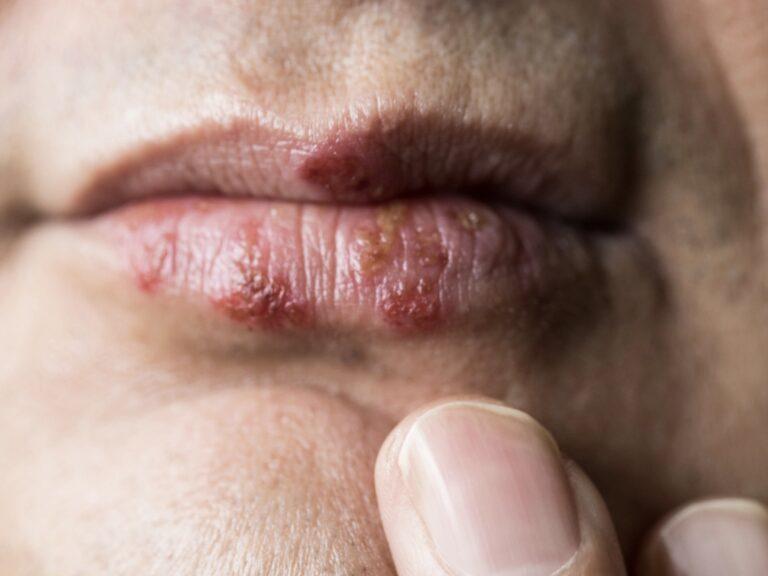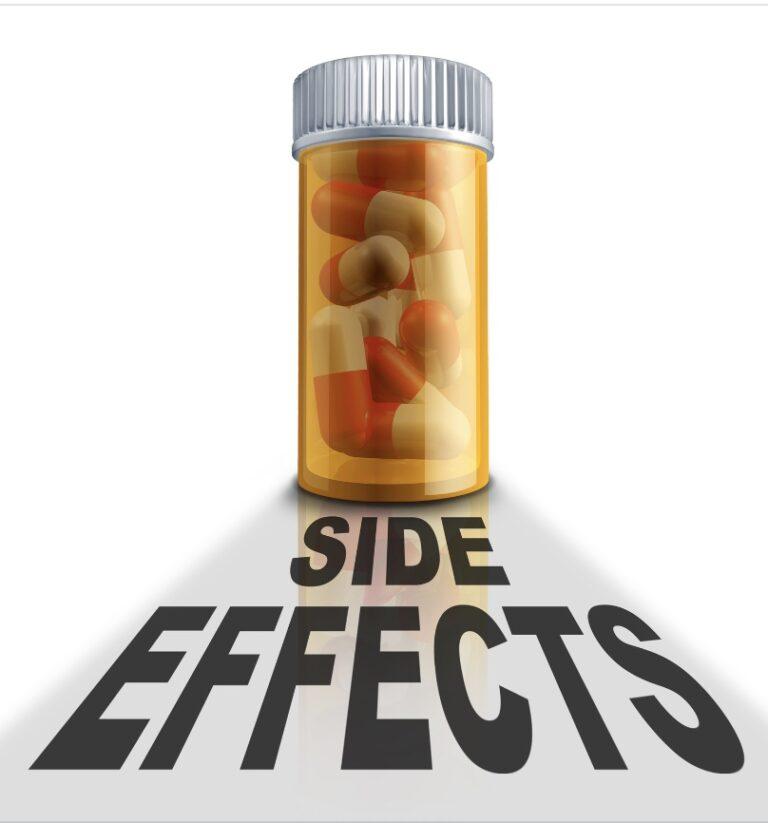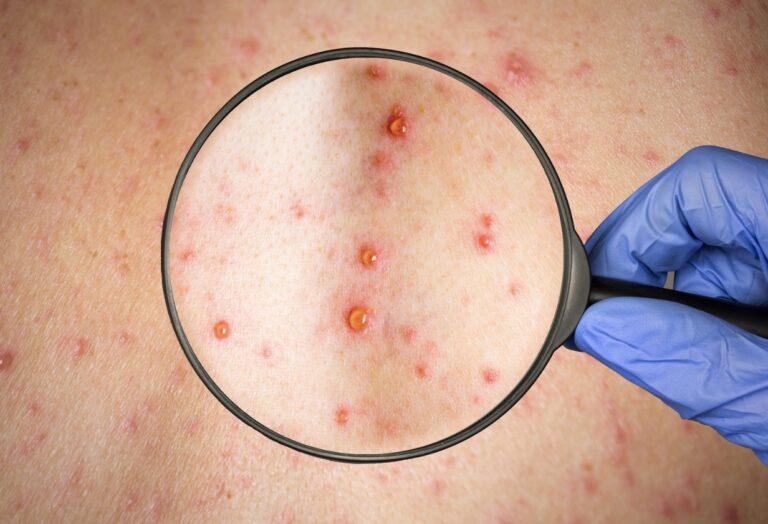Shingles
Get valuable insights into Shingles, including its causes, symptoms, prevention strategies, and treatment options, while also learning about how you can lower the cost of the medications used to treat Shingles.

MEDICAL INFORMATION
Shingles Key Facts
Related Medications
Shingles, also known as herpes zoster, is a viral infection caused by the varicella-zoster virus (VZV), the same virus responsible for chickenpox. Here, we aim to provide you with an in-depth overview of shingles, including its causes, symptoms, risk factors, diagnostic methods, treatment options, and prevention strategies.
What is Shingles?
Shingles is a painful rash that typically appears as a band or strip of blisters on one side of the body, often wrapping around the torso. It occurs when the dormant varicella-zoster virus, which remains in the body after a previous chickenpox infection, reactivates.
What are the causes and risk factors of Shingles?
The exact triggers for reactivation of the dormant varicella-zoster virus causing shingles are not fully understood. However, several factors can increase the risk of developing shingles.
Age
Shingles primarily affects older adults, with the risk increasing significantly after the age of 50. The decline in immunity with age is thought to contribute to the reactivation of the virus.
History of Chickenpox
Having had chickenpox in the past is a prerequisite for developing shingles. The varicella-zoster virus remains dormant in the nervous system after the initial infection and can reactivate later in life.
Weakened Immune System
A weakened immune system increases the risk of shingles. Conditions that compromise the immune system include HIV/AIDS, certain cancers (such as leukemia or lymphoma), undergoing chemotherapy or radiation therapy, and long-term use of immunosuppressive medications (such as corticosteroids).
Stress
High levels of physical or emotional stress can weaken the immune system and potentially trigger a shingles outbreak.
Certain Medical Treatments
Certain medical treatments that suppress the immune system, such as organ transplantation, can increase the risk of shingles.
Injury or Trauma
Physical trauma or injury to a specific area of the body may increase the likelihood of shingles affecting that area.
Gender
Women tend to have a slightly higher risk of developing shingles compared to men.
It is important to note that shingles is not directly transmitted from one person to another. However, a person with active shingles can transmit the varicella-zoster virus to someone who has not had chickenpox before, leading to the development of chickenpox, not shingles.
Understanding the risk factors for shingles can help individuals take preventive measures or seek early treatment if they develop symptoms. Vaccination with the shingles vaccine (Zostavax or Shingrix) is recommended for individuals over the age of 50 to reduce the risk of shingles and its potential complications including the involvement of the central nervous system causing encephalitis. If you suspect you may have shingles or have concerns about your risk, it is best to consult with a healthcare professional for proper evaluation and guidance. In the UK, eligible patients between 70-80 years of age are offered the shingles vaccine by the NHS.
What are the symptoms of Shingles?
Shingles causes a painful rash. The symptoms of shingles typically develop in stages and can vary in severity from person to person. The most common symptoms of shingles include:
Pain and Sensation
Shingles often begins with pain, itching, tingling, or a burning sensation in a specific area of the skin. This is usually localized and may occur on one side of the body or face. The pain can be intense and may precede the appearance of the rash by a few days.
Rash
Within a few days of the initial symptoms, a red, blistering rash appears. The rash typically follows a band-like or stripe-like pattern and is usually confined to one side of the body or face. It can occur on the trunk, chest, abdomen, back, or face. The rash may be itchy and can be accompanied by swelling. New blisters may continue to emerge for up to a week. After a few days, these blisters typically change to a yellowish hue, become flat, and start to dry out. Scabs replace where the blisters were. This may lead to minor scarring.
Fluid-Filled Blisters
The rash progresses to small, fluid-filled blisters that resemble chickenpox lesions. These blisters are usually grouped together and may be painful to touch. Over time, the blisters may break open, ooze fluid, and form crusts.
Other Symptoms
In addition to the rash and pain, some individuals may experience other symptoms, including:
- Fever
- Headache
- Fatigue
- Sensitivity to light
- Swollen lymph nodes
It’s important to note that shingles symptoms typically affect a specific dermatome, which is an area of skin supplied by a single spinal nerve. The most commonly affected dermatomes are those associated with the thoracic (chest) and trigeminal (face) nerves.
The duration of the symptoms can vary, but most people experience a resolution of symptoms within two to four weeks. However, in some cases, post-herpetic neuralgia (PHN) can occur, which is persistent pain that can last for months or even years after the rash has healed.
If you experience symptoms that suggest shingles, it is important to seek medical attention for proper diagnosis and treatment. Early intervention with antiviral medications can help reduce the severity and duration of symptoms and minimize the risk of complications.
How are cases of Shingles diagnosed?
A healthcare professional, such as a primary care physician/doctor, pharmacist or dermatologist, can evaluate your symptoms and perform a physical examination to make a diagnosis. They may also order additional tests or investigations if needed. Here are the common methods used to diagnose shingles:
Medical History
The healthcare provider will ask about your medical history, including any past occurrences of chickenpox or exposure to the varicella-zoster virus. They will inquire about your symptoms, such as the nature of the pain or rash, the timeline of symptom onset, and any associated symptoms.
Physical Examination
The healthcare provider will conduct a thorough examination, focusing on the affected area. They will look for characteristic signs of shingles, such as a rash with fluid-filled blisters, grouped lesions in a dermatomal distribution, and any associated swelling or redness.
Viral Culture
In some cases, a viral culture may be performed to confirm the presence of the varicella-zoster virus. This involves collecting a sample from the blister fluid and sending it to a laboratory for analysis. However, viral culture is not commonly used for diagnosing shingles because it is time-consuming and may not always yield accurate results.
Polymerase Chain Reaction (PCR) Test
PCR testing can detect the presence of viral DNA in the fluid from the blisters. This test is highly sensitive and specific and can help confirm the diagnosis of shingles.
What are the treatment options for Shingles?
The treatment for shingles aims to relieve symptoms, promote healing, and prevent complications. It typically involves a combination of medications and self-care measures. If you suspect you have shingles, it is important to consult with a healthcare professional for proper evaluation and treatment recommendations. Here are the common treatment options for shingles:
Antiviral Drugs
Antiviral Drugs, such as acyclovir, valacyclovir, or famciclovir, are commonly prescribed to treat shingles. These medications work by inhibiting the replication of the varicella-zoster virus, reducing the severity and duration of the outbreak. Starting antiviral treatment within 72 hours of the rash onset is most effective. However, they may still be beneficial if started later in the course of the illness. Antiviral medications are typically taken orally for a specific duration as prescribed by the healthcare professional.
Pain Relief Medications
Over-the-counter pain relievers, such as acetaminophen in US (Tylenol) /Paracetamol (Panadol) in UK, or non-steroidal anti-inflammatory drugs (NSAIDs) like ibuprofen, can help alleviate pain and reduce inflammation associated with shingles. In some cases, stronger prescription pain medications may be necessary for severe pain.
Topical Treatments
Topical creams or ointments containing calamine lotion or lidocaine can be applied to the affected area to provide relief from itching and pain. These topical treatments may help soothe the skin and reduce discomfort.
Antihistamines
If itching is a prominent symptom, antihistamines, such as diphenhydramine (Benadryl), may be recommended to help alleviate itching and improve sleep.
Cool Compresses
Applying cool, moist compresses to the affected area can help relieve pain and itching.
Keep the Rash Clean
Keeping the rash clean and dry can help prevent secondary bacterial infection. Gentle cleansing with mild soap and water followed by patting dry is recommended.
Protect the Rash
It is important to avoid scratching or picking at the rash to prevent further irritation or infection. Keep the affected area covered with a sterile, non-stick dressing to protect it from rubbing against clothing.
Rest and Self-Care
Getting plenty of rest and taking care of yourself can help support the healing process. Ensure you maintain good overall hygiene and follow a healthy diet to support your immune system.
In addition to these treatment options, it is important to take measures to prevent the spread of the varicella-zoster virus to others, particularly individuals who have not had chickenpox or the chickenpox vaccine. This includes avoiding close or direct contact with individuals who are at risk, keeping the rash covered, and practicing good hand hygiene.
It is recommended to consult with a healthcare professional for an accurate diagnosis and appropriate treatment recommendations tailored to your specific situation. They can provide personalized advice based on the severity of your symptoms and any underlying health conditions you may have.
What medications are used in Shingles?
Antiviral Medications
- Acyclovir: Available as oral tablets, capsules, or intravenous (IV) formulation
- Valacyclovir: An oral medication that is converted to acyclovir in the body
- Famciclovir: An oral medication that is converted to penciclovir in the body
These antiviral medications are most effective when started within 72 hours of the skin rash’s appearance. They help suppress the replication of the varicella-zoster virus, which causes shingles.
In addition to antiviral medications, doctors may prescribe other medications to manage pain, itching, and other symptoms associated with shingles. These medications may include:
Analgesics
- Acetaminophen (paracetamol): Helps relieve pain and reduce fever
- Nonsteroidal Anti-Inflammatory Drugs (NSAIDs): Such as ibuprofen or naproxen, which can help reduce pain and inflammation
Topical Medications
- Calamine lotion: Applied topically to soothe itching and irritation
- Lidocaine cream or gel: Used to numb the affected area and alleviate pain
Antidepressants
Tricyclic antidepressants: In some cases, medications such as amitriptyline or nortriptyline may be prescribed to help manage nerve pain associated with shingles.
How to prevent the onset of Shingles?
Preventing the onset of shingles involves taking measures to reduce the risk of reactivation of the varicella-zoster virus, which is the underlying cause of shingles. While it may not be possible to completely eliminate the risk, there are several strategies that can help lower the chances of developing shingles. Here are some preventive measures:
Vaccination
The most effective way to prevent shingles is through vaccination. The shingles vaccine, which is recommended for individuals aged 50 and older (in the UK, the NHS offers the vaccine to adults between the age of 70 and 80), helps boost the immune system’s response to the varicella-zoster virus, reducing the risk of reactivation and the severity of the disease. The two main vaccines available are Zostavax and Shingrix, with Shingrix vaccine being the preferred vaccine due to its higher efficacy.
Maintain a Healthy Immune System
A strong immune system can help protect against shingles. Maintaining a healthy lifestyle that includes regular exercise, a balanced diet, adequate sleep, and stress management can support a robust immune response.
Reduce Stress
High levels of stress can weaken the immune system and potentially trigger the reactivation of the varicella-zoster virus. Engage in stress-reducing activities such as exercise, meditation, yoga, or hobbies that promote relaxation and well-being.
Good Hygiene Practices
Practicing good hygiene can help prevent the spread of the varicella-zoster virus to others. This includes regular hand-washing with soap and water, especially after coming into contact with the rash or blister fluid.
Avoid Contact with High-Risk Individuals
If you have an active shingles rash, avoid close contact with individuals who have not had chickenpox or the chickenpox vaccine, particularly pregnant women, newborns, and individuals with weakened immune systems.
Early Treatment of Chickenpox
If you or your child develops chickenpox, seek medical attention and follow the recommended treatment plan. Prompt treatment of chickenpox can help minimize the risk of the virus remaining dormant in the body and later reactivating as shingles.
Be Aware of Personal Risk Factors
Understanding your personal risk factors for developing shingles can help you take proactive measures. Factors such as older age, previous history of chickenpox, certain medical conditions, and medications that weaken the immune system should be taken into account.
It’s important to note that while these preventive measures can reduce the risk of developing shingles, they do not guarantee complete prevention. However, by following these strategies, you can significantly lower the likelihood of experiencing a shingles outbreak or reduce the severity of the disease if it does occur.
What Shingles support organisations are there available to support me in the UK?
- Shingles Support Society: The Shingles Support Society is a UK-based charity that aims to provide information, support, and resources for individuals affected by shingles. They offer educational materials, advice on managing symptoms, and a helpline for individuals seeking guidance
- Herpes Viruses Association: Although primarily focused on various herpes viruses, including shingles (herpes zoster), the Herpes Viruses Association offers information and support for individuals affected by shingles. They provide educational materials, a helpline, and resources to help individuals understand and manage the condition
What Shingles support organisations are there available to support me in the US?
- National Shingles Foundation: The National Shingles Foundation is a non-profit organization dedicated to providing support, education, and resources for individuals affected by shingles. They offer information on symptoms, treatment options, and post-herpetic neuralgia (PHN), a potential complication of shingles
- American Academy of Dermatology (AAD): The AAD provides resources and information on various skin conditions, including shingles. They offer educational materials, a “Find a Dermatologist” tool, and a patient education section that can provide guidance for individuals with shingles
- Centers for Disease Control and Prevention (CDC): The CDC is a national public health agency that provides information and resources on a wide range of health conditions, including shingles. They offer comprehensive information on symptoms, prevention, vaccines, and treatment options for individuals with shingles
- Shingles Support Society: Although based in the UK, the Shingles Support Society also provides support and resources for individuals affected by shingles globally, including the United States. They offer information, advice, and a helpline for individuals seeking guidance
Summary
Shingles is a viral infection that can cause significant pain and discomfort. Recognizing the symptoms, seeking early medical attention, and following the prescribed treatment can help manage the condition and prevent complications. Vaccination is strongly recommended to reduce the risk of developing shingles. If you experience symptoms suggestive of shingles, consult a healthcare professional for an accurate diagnosis and appropriate treatment. With timely intervention and proper care, the duration and severity of shingles outbreaks can be reduced, improving overall quality of life.
Medical Disclaimer
NowPatient has taken all reasonable steps to ensure that all material is factually accurate, complete, and current. However, the knowledge and experience of a qualified healthcare professional should always be sought after instead of using the information on this page. Before taking any drug, you should always speak to your doctor or another qualified healthcare provider.
The information provided here about medications is subject to change and is not meant to include all uses, precautions, warnings, directions, drug interactions, allergic reactions, or negative effects. The absence of warnings or other information for a particular medication does not imply that the medication or medication combination is appropriate for all patients or for all possible purposes.







